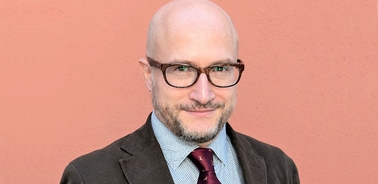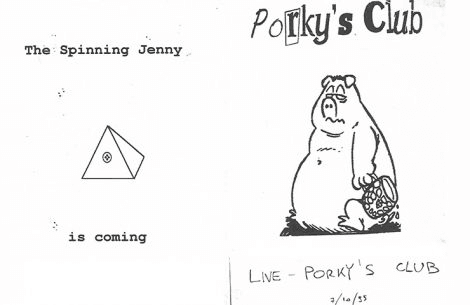- Home
- News And Events
- What’s Going On
- Faculty Spotlight: Marco Giarratana
Faculty Spotlight: Marco Giarratana

Meet one of IE Business School’s top researchers.
Long before Covid-19, IE Business School Professor of Strategy Marco Giarratana was researching how companies can benefit from diversification and strategically use their resources. He chaired the school’s Strategy Department for two years, before stepping into his current role as Vice-Rector of Research at IE University. His main research interests focus on the role of diversification, product strategies, patents and trademarks, and CSR on firm performance. His articles are frequently published in Organization Science, Strategic Management Journal, Research Policy and many others.
Take a closer look at one of IE Business School’s top researchers.

It was basically a decision based on research, and then on teaching. I was a full professor in Bocconi University Milan and I was looking for an institution that was a better match for my research agenda. On the other hand, coming from a long experience in teaching, coordination and designing undergraduate/PhD programs, I was also interested in having a more in-depth experience in Masters and MBA programs in an organization that is a business school in its DNA. One of the main drivers of my mobility is to run away from settled situations and be in a dynamic place where I can learn something new.
Have you ever had an a-ha moment while teaching that furthered your research? What was it?
This happens all the time. I continuously bring into class techniques, intuition, logic and results coming from my research. I see that students are super-interested in these topics and when you involve them in some sort of replication of your study, it is a win-win situation. For example, having an article published on the success of US TV series, a topic that students love, I use the data and results of my paper to replicate with students the decision of TV series termination in a sort of managerial simulation.
What book do you wish your students would read before taking your class and why?
Even if it is not a recent book, Sunk Costs and Market Structure by John Sutton. Maybe the title resonates as academic jargon, but the essence means-- apologies to Prof. Sutton-- how firms could use the intangibles coming from R&D and marketing to create entry barriers and increasing competitive advantage. More timely than ever.
Please name one of your articles you feel addresses the most important issues in 2021 for IE alumni?
The last article I published with two colleagues at IE, Prof. Pasquini and Santaló, looks at performance of product portfolio of companies. It was a long journey, since we started to download the data of this project in 2014 and we published in the top journal in strategy in 2021. We discovered that companies could have product portfolios that create synergies or portfolios that create investment switching opportunities. These two types of portfolios have a completely different impact on firm performance and its variance. Take for example a company that sells home detergents, ice-cream, shower gel, mayonnaise, deodorants … knowing if these product categories generate synergies and/or investment switching opportunities is a key strategic information. So pay attention as an investor to consider diversified firms with a one-size-fits-all perspective.
Whose research of your IE colleagues do you find interesting? Why?
Difficult question because I am now chairing the office of Vice-Rector of Research, and so I have a bird’s eye view on all our faculty research. Without naming names, I can say that the research at IE asks very intriguing questions with an important societal impact under different perspectives, using a vast array of the most modern research techniques, meaning that we are really at the top research frontier.
Tell us one personal thing about yourself that none of your students knows. A hobby, sport or talent? Strange fact? Unusual interest?
During my student university years, I was playing the guitar in a heavy-metal band, called the Spinning Jenny. It was an exhausting, but energizing activity between rehearsals and gigs. I remember very funny concert hall environments, almost spirited. For example, there was a club The Porky’s (a 1995 flyer attached), in which we played, where at the entrance there was a sign that said “Please, do not collapse under the tables.” Today, I have difficulty hearing the bass sound, the effect of having giant amps behind you. Clearly, the band was always out of money, out of luck.